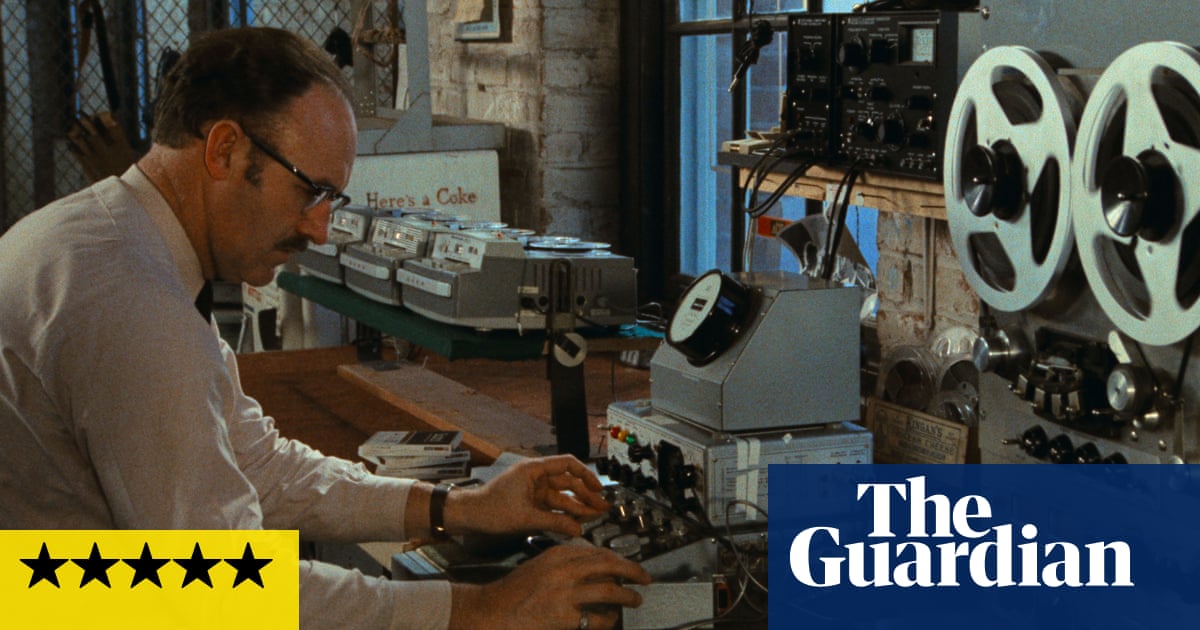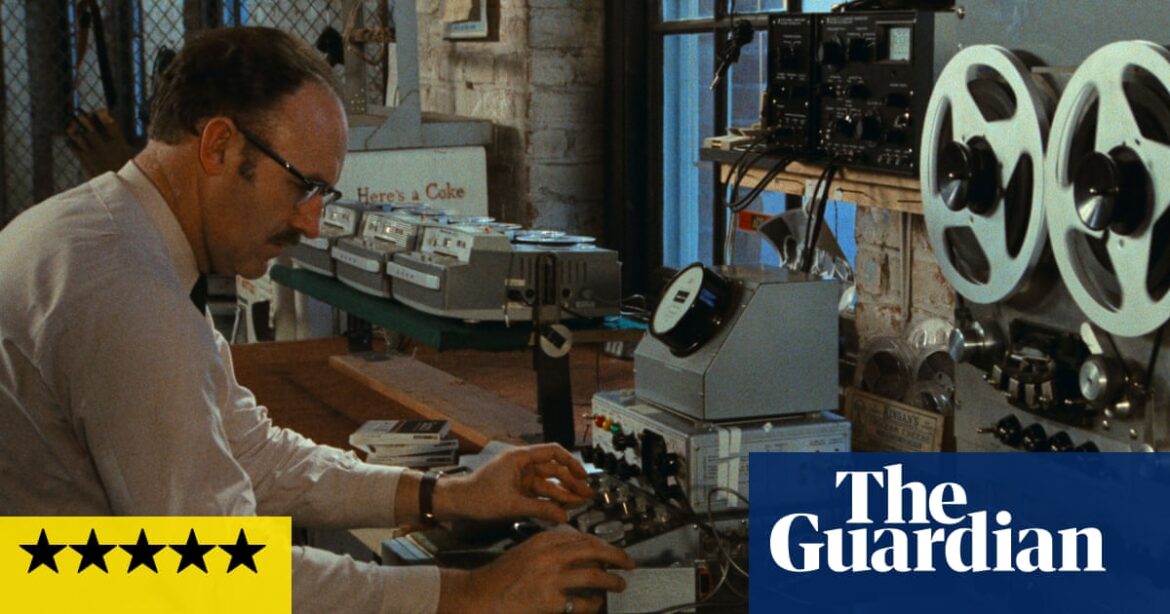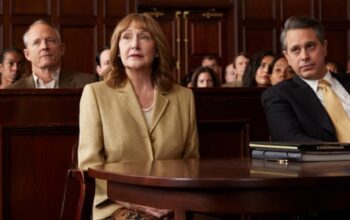
God’s surveillance is everywhere: this is the thought that weighs heavily on bugging expert and practising Catholic Harry Caul in Francis Ford Coppola’s eerie 1974 classic, now on rerelease. It was a movie that intuited Watergate-era paranoia and disillusion: at the nadir of his despair, Harry ends up smashing a figure of the Blessed Virgin in his apartment because he suspects it contains a listening device. The Conversation contains an unforgettable performance from Gene Hackman as Caul: in his glasses and moustache, drab suit, white shirt and tie with clear plastic mac worn indoors, it is a classic and poignant “American everyman” portrayal, to put alongside Ernest Borgnine in Delbert Mann’s Marty from 1955 or Paul Walter Hauser in Clint Eastwood’s Richard Jewell from 2019. He probably inspired Ulrich Mühe’s East German Stasi agent in Florian von Donnersmarck’s 2006 film The Lives of Others, eavesdropping on lives happier and more fulfilling than his.
Caul works in San Francisco, as a private espionage and security consultant tracking a young couple at the behest of executives at a certain shadowy corporation, played by Robert Duvall and Harrison Ford. The challenge is somehow to tape-record everything this targets murmur secretively to each other as they walk around a crowded public square. Like a great artist aware that he is about to bring off his masterpiece, Harry obsesses over the conversation, playing it over and over again; it is mostly dull chat with whose details we, the audience, are to become uncomfortably and unnaturally familiar. And Coppola lets us ponder: what would it be like if we could scrutinise in such detail a forgettable 10 minutes in any of our lives? Could some meaning be distilled from it? Might there be a kind of heroism and decency discernible in its ordinariness, a banality of good?
Caul obsessively smoothes out audio glitches, experimenting with frequencies and tape combinations, volume and tone, establishing a definitive text by superimposing a number of separate recordings from a team of different operatives with directional microphones positioned high up in various buildings (like Lee Harvey Oswald in the Texas School Book Depository), as well as ordinary guys following the pair around at ground level. He broods over one moment when the couple sadly discuss a comatose homeless drunk. Does Caul fear that this will be his own fate? Gradually, the conversation comes together in Caul’s head; it hinges on an eight-word phrase whose pitch and intonation is to be vitally important. Did Caul’s equipment distort it? Did he mishear it?
And all the time we see Caul’s inexpressibly sad and lonely private life. He is quite unable to form a relationship with women he meets, like Amy (Teri Garr) and Meredith (Elizabeth MacRae), because he suspects they are spying on him or working for his enemies – and in one horribly ironic case, he’s right. He hangs out with fellow surveillance experts at a seedy bugging equipment trade fair (a masterly sequence), going drinking with these shabby, venal guys: underling Stan (John Cazale), moonlighting cop Paul (Michael Higgins), and creepy and jealous surveillance rival Bernie (Allen Garfield) who hints he worked for Nixon against McGovern in 1972.
But Caul is driven by guilt: he is committing the cardinal professional sin of caring about the people he’s watching, and he is in agony because, as Bernie points out, he used to work in New York but mysteriously left, trying to suppress the memory of something that happened there. Now, in his midlife crisis (the movie opens on his 44th birthday, though he tries to pass for 42) poor Caul tries to redeem himself and save this young couple from an awful conspiracy. His guilt emerges in a quite extraordinary dream sequence whose impact is easily overlooked because of the distractingly sinister banality of everything else in his waking life. Caul dreams that he speaks to the young woman, Ann (Cindy Williams) about all the awful things that happened to him as a child: he almost drowned in the bath and thinks he might actually in his boyhood have killed an adult by hitting him in the stomach, a bizarre but mesmerically authentic trauma-memory.
The Conversation is the high-water mark of paranoid cinema, because of its beady-eyed specificity and attention to detail. Caul himself, despite his God-like ubiquity, is tragically seedy and pathetic, rather like the grimy but all-seeing private detective in Greene’s The End of the Affair. Hackman endows him with a toughly depressive, martyred integrity.
after newsletter promotion
Source: theguardian.com



